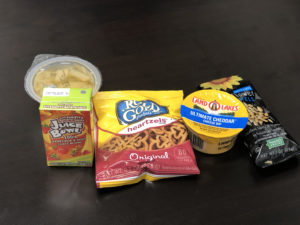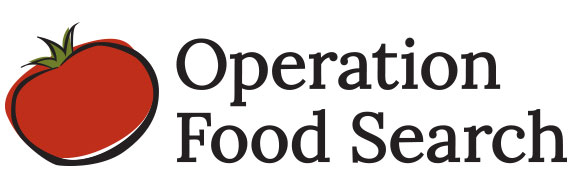ST. LOUIS – Even after the Healthy Hunger for Kids Act was established in 2010 by former-first lady Michelle Obama, there has still been a condescending look towards what school food looks and tastes like. Brian Wieher, director of child and family nutrition programs at Operation Food Search (OFS), has made it his mission to change that outlook.
“People got really freaked out and didn’t know what to do. Well, you read the rules, you read the regulations, you figure them out, you work within them. However, there’s still the stigma of school food just being school food,” he said. “My goal and my aspiration is to make school food better.”
With a background in school nutrition and working within school systems, Wieher’s emphasis is on school nutrition and federal nutrition programming. Wieher got into nonprofit work after seeing a child experience food insecurity while working as a supervisor of school nutrition and realized he could do more in nonprofit work through the region, across the state, and eventually share those findings at the national level.
OFS is a sponsor for two federal programs, the CACFP Program, known as the afterschool meals program, and the Summer Food Service Program. In addition to the federal programs, OFS also has their own Weekend Backpack Program, to help continue to fill the gap when school is not in session.

As the director of child and family nutrition, Wieher oversees the two federal programs and the backpack program, as well as the organization’s Nutrition Education Program. The three meal programs meet the organization’s pillar of immediate need and the education program meets the organization’s pillar of expanding nutrition IQ.
“They touch into our third pillar of Champion Change,” Wieher said. “We want to get everybody, the people that we serve, involved in all three aspects that we do. Being that these are federal nutrition programs, we want to utilize them as much as we can, as well as advocate for them and advocate for the people that use them.”
Wieher has a history of public speaking and presenting workshops to sell people on the idea that school lunches can be good.
“I’ve seen it, I’ve done it, and here at OFS we’re trying to expand that thought process, that advocacy pillar,” he said.
Speaking and presenting at the upcoming 33rd National CACFP Sponsor Association (NCA), Wieher will have a chance to share the work that OFS has done and help as many people as possible to begin similar work in their own communities.
At the conference in Chicago, Wieher will present on three different sessions: Mobile Meals, After School Refuel Super Snack Program, and Growing Stronger Sustainable Year Round Programs.
OFS began its mobile meals program in the St. Louis region four summers ago and was one of the first organizations in the state to even attempt the summer food programming on wheels.

“It’s a neat, different after-school program that we’re trying to get out to people,” Wieher said. “We’ve virtually eliminated waste [and] plate waste in child nutrition programs is one of the biggest issues.”
Partnering with Food Research Action Center (FRAC), Wieher will be working to tie the two, separate federal programs together to help in making sponsors successful in providing year-round meals.
Wieher said he hopes the biggest take away from the conference on April 23rd through 25th is that listeners find their “ah-ha!” moment in understanding how to get over obstacles and barriers, knowing that have a resource within OFS.
“I want them to learn something and walk away with something,” he said.

